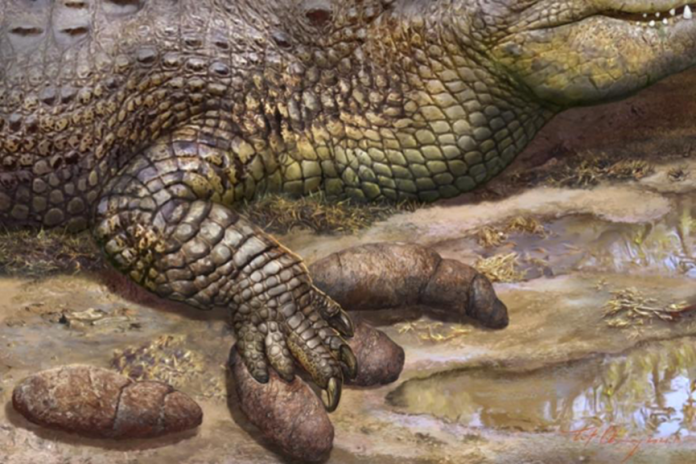Coprolites with footprints. (Photo provided by Institute of Chiropractic, Chinese Academy of Sciences)
source:xinhuanet
33 million years ago, a crocodile stepped in a fresh pile of excrement, and the footprints remain to this day. According to the Institute of Vertebrate Paleontology and Paleoanthropology of the Chinese Academy of Sciences on Wednesday February 23rd, the team found the rare footprints in northern Vietnam, which is the first coprolites found with crocodile footprints. The findings have been published online in the international journal “Ancient Worlds”.
In 2018, a research team led by Deng Tao from the Institute of Vertebrate Paleontology of the Chinese Academy of Sciences and Vietnamese institutions found more than 100 coprolites and fossils of various vertebrates, including the crocodile footprints coprolites.
Corresponding author Dr. Paul Lamy of the Institute of Vertebrate Paleontology of the Chinese Academy of Sciences said the tracks, about 4 centimeters long, probably belonged to a crocodile about 2 meters long that lived 33 million years ago and consisted of the fourth and fifth digits of its right forefoot. “To preserve such fossils, the excrement must be fresh when trodden on, and the ground must be soft and wet. It’s an environment that creates footprints without crushing them.” Paul Lamy said.
Because crocodiles are social reptiles and usually live in groups, scientists couldn’t be sure if the animal had stepped in its own feces. Fossil crocodile tracks are relatively common, but this is the first time that coexisting crocodile tracks have been found on coprolites, explains Paul Lamy. Fresh faeces can be a better shape conservator than most sediments because of their soft structure and fat content.
Coprolites research has attracted a lot of attention in recent years and has established an academic system. Coprolites, as a new thing in the field of paleontology, have been a very important part of relic fossil research, and play an important role in the preservation of biological behavior characteristics. Through the study of coprolites, scientists can analyze and judge the diet, living environment and biodiversity of organisms. (Reporter Jin Di, Zhang Quan)

This is a reconstruction of the crocodile stepping on the excrement. (Photo provided by Institute of Chiropractic, Chinese Academy of Sciences)






















